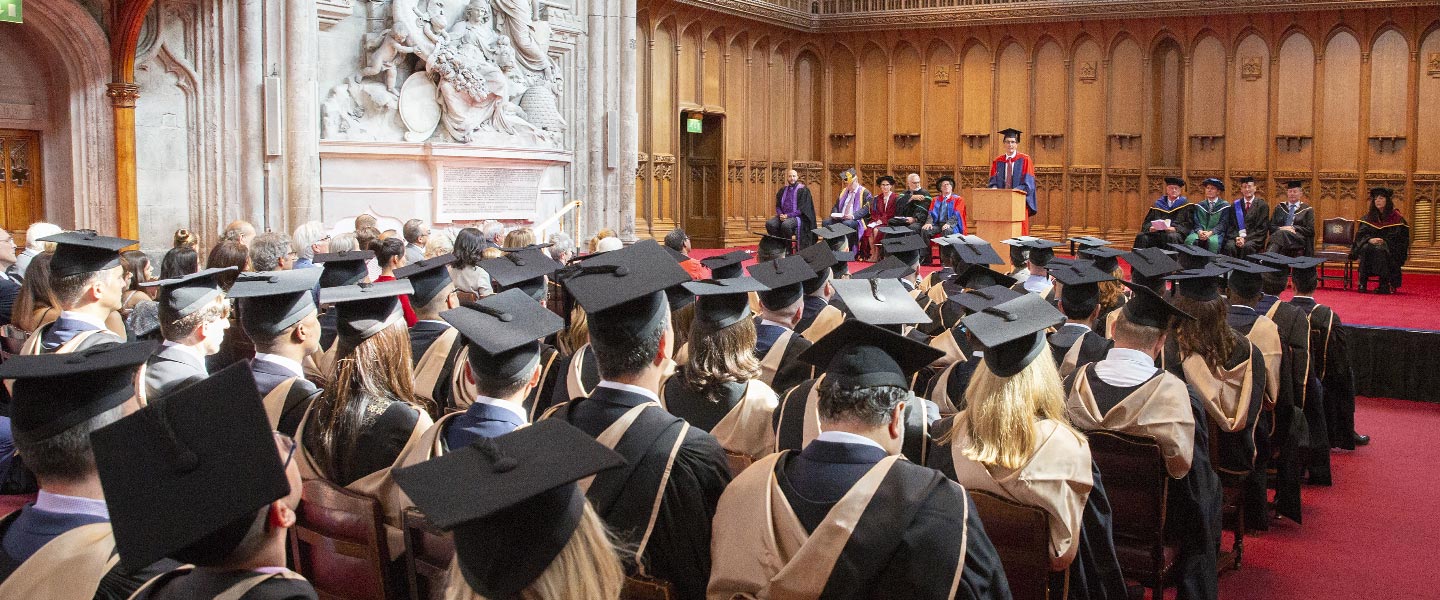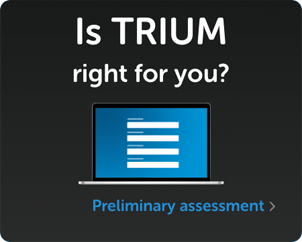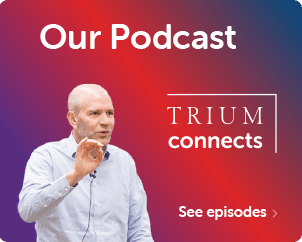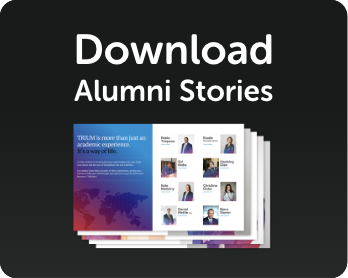

Choosing your Global EMBA
After deciding to invest your future and study for a Global EMBA, the biggest decision you’ll face is where to study.
There are many excellent Global EMBA programs, and it is time consuming to uncover and understand the differences between seemingly similar programs.
To help identify the programs that are the best fit for your personal and professional goals, and to help you gauge if TRIUM is the right for you, here are a few key questions we encourage you to ask.
What type of cohort do you want to be part of?
Global EMBA cohorts are typically based in first world economies, and often comprise of a large contingent from the banking and finance sector, larger corporations and more traditional industries. A typical student profile would be a mid-senior level executive with an average age of 35, aiming to move into a leadership or C-Suite position, seeking a breadth of core business skills.
TRIUM caters for a high calibre cohort that tend to be more senior than other EMBAs. Our students are typically already successful in their field, and are often looking for a launchpad for the next chapter of their careers, and to build their global network. Along with banking and finance and other core industries, we also welcome professionals from energy, technology, manufacturing, real estate, health and pharmaceuticals, along with those transitioning from specialist roles in engineering, law and medicine as well as entrepreneurs and those from creative industries.
This makes for a diverse cohort that enhances the overall learning experience, with a cross-fertilisation of knowledge and ideas. Our graduate surveys show that this shared learning with classmates is a hugely valued aspect of the program.
We value diversity, with a typical TRIUM class consisting of over 30 nationalities. We offer scholarship awards for women in business, emerging markets, public sector/NGO, healthcare and the creative industries.
As part of your research, we encourage you to talk to TRIUM students and alumni from backgrounds similar to your own. Our admissions team can arrange this for you.
Do you want a regional or global focus?
Whilst the category is called a ‘Global EMBA’, in truth single school or two partner programs often gravitate to a specific region(s), determined by where they are based, and tend to attract local business communities. So it’s important to assess the geographical focus of each program and align it to your needs.
A regional specialism is appropriate if, for instance, one of your primary motivations is business in China, in which case you’ll want a course with a regional bias on China and probably involves studying there. If you are looking for a global perspective, courses with a broader geo-political view and global learning experience – such as TRIUM – should be on your shortlist.
Are there any particular topics that you are keen to learn or develop skills in?
The top ranked EMBA programs are closely aligned in offering quality, so it’s important to look closer at the value propositions and to ask whether the program meets your learning needs.
Take a deep dive into the curriculum and understand the depth and breadth of the teaching. Does it cover everything you want to learn, at the right level? Some programs will have a business and finance focus, others may place emphasis on certain areas deemed important for the future, or region of focus. This should be clear from the program literature.
TRIUM, for instance, has a focus on understanding the geopolitical aspects of business decision making, on entrepreneurial thinking, on technology, innovation, and leadership.
Does the format of the course suit you?
Global EMBAs need to fit around your job and family life, so consider the learning format that will work best for your current home and work situation. Are you willing to travel, or would you prefer to be based in one or two locations? Does the course format require weekly or monthly attendance, or is it broken down into more in intensive blocks that are spread out (as with TRIUM)?
Whilst travelling to learn in a milieu appropriate to the subject being taught provides an immersive experience, it does require commitment and energy.
TRIUM’s locations, based in dynamic global business hubs, provide a deep dive into each module’s topics, with company visits and guest speakers enhancing your understanding of these ecosystems and demonstrating the application of the theory learned in the classroom.
How to use the rankings
Rankings are the starting point for many candidates’ research. Two prominent ranking tables are published by the Financial Times, and QS World University Rankings.
Any of the Top Tier ranked Global EMBAs will give you an excellent education (in the 2024 FT rankings, Top Tier covers programes ranked 1-9; 2nd tier is programs ranked 10-44; and 3rd tier any below that). The program(s) most suited to your goals will hopefully emerge once you’ve answered the questions above.
Rankings are presented as league tables based on proprietary methodologies that place importance on some factors over others. For example, the largest factor determining the Financial Times ranking position is salary and salary increase after graduation. This favours programs with younger cohorts who are perhaps likely to receive a bigger salary bump following graduation, but perhaps penalises those whose cohort uses the Global EMBA as a springboard to a new career path. Bear this in mind if your motivation for studying is broader than a salary increase: some of the top ranked courses might not be best fit for your aspirations.
The FT does not publish the final ‘total points’ of each program, so no one knows the gap between each position. However, the industry consensus is that the differences are marginal, hence our assertion that any of the top tier Global EMBA courses are high quality. We encourage potential students to review the methodologies behind these rankings, as some factors may be more relevant to you than others.
TRIUM’s latest rankings:
Financial Times EMBA Rankings:
#5 overall
#1 for International Experience
#1 for Work Experience
QS World University Rankings:
#1 Joint Program Global EMBA






